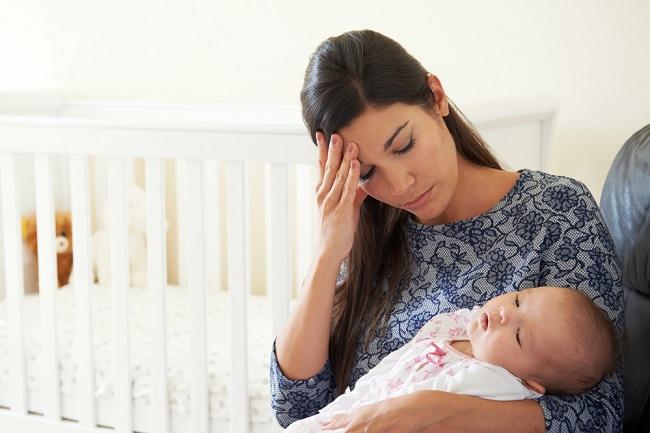Don't assume trivial psychological disorders after childbirth
Psychological disorders can occur to anyone, including the mother who has just given birth. This should not be considered trivial. In some cases, the psychological after giving birth can trigger actions that are able to harm a child or himself.
Psychological disorders after childbirth can occur in days, weeks, or even longer. This condition requires proper handling and help from a psychiatrist, especially if the psychological disorder experienced lasts more than two weeks.

Types of Postpartum Psychological Disorders
Until now, it is not known for sure the main cause of psychological disorders after childbirth. It's just known that there are several factors that can trigger the appearance of this disorder, including hormonal, environmental, emotional, to genetic factors.
The types of psychological disorders after childbirth also vary, here are some of them:
- Baby blues syndrome
About 40-80% of women experience a baby blues syndrome after giving birth. Baby blues syndrome is characterized by excessive worry or doubt about their ability to care for children.
In addition, sufferers of baby blues are often nervous, impatience, irritability, can even cry for no apparent reason, to sleeplessness. Some baby blues sufferers also find it difficult to bond with their babies.
Baby blues usually last for several days and can disappear on their own within 1 to 2 weeks. Exchange of ideas with fellow mothers or friends who are able to understand the burden of a mother, may be able to help recovery.
- Depression postpartum If the baby blues happens more than two weeks, then it could be experienced not baby blues, but postpartum depression or postpartum depression. This psychological disorder after childbirth does have symptoms similar to baby blues , but much more severe.
Some women who experience postpartum depression can have deep guilt or regret. Postpartum depression sufferers are often unable to take care of themselves, especially their babies. When experiencing this condition, often they are also unable to carry out daily activities.
A woman is at risk of experiencing postpartum depression, especially if she has a previous history of depression or if a family member has been depressed.
Problems with the household, low self-esteem, and unplanned pregnancy can also increase the risk of postpartum depression. This condition needs immediate treatment from a psychiatrist or psychologist, because if left unchecked, the risk of endangering the life of the mother and child.
- Psychosis postpartum
This psychological health disorder is quite severe, and can occur in new mothers. Postpartum psychosis can occur quickly, generally around the first three months after giving birth. Symptoms that appear almost the same as the baby blues and postpartum depression, namely anxiety, anger, and difficulty sleeping. But besides these symptoms, patients with postpartum psychosis can experience hallucinations and perception disorders. For example, see or hear something that is not real, and believe things that do not make sense.
Women who are suspected of experiencing postpartum psychosis must immediately get treatment, even the possibility of needing to be treated. Because, people with this condition risk hurting themselves or other people, including their babies. To deal with postpartum psychosis the doctor may give antidepressants, antipsychotics, and drugs that help stabilize the mood. Doctors need to provide these drugs with proper consideration, because they are at risk of being absorbed into breast milk (ASI) that will be given to the baby.
Psychological disorders after childbirth cannot be underestimated. Recognize the symptoms well, and if symptoms arise that interfere with the activity, immediately consult the complaint to the doctor.
Label : Health
Comments
Post a Comment